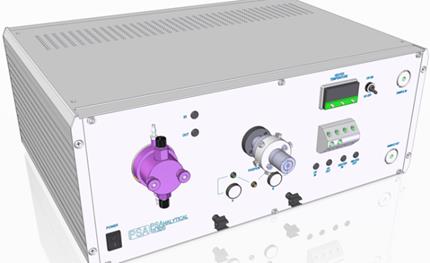Hg, As and Se IN POWER PLANT WASTEWATER
In June 2013, the EPA proposed a new rule (40 CFR, part 423 click here) in an attempt to reduce the amount of toxic metals and other pollutants discharged to surface water from power plants. Previous regulations do not consider the additional burden of water discharge pollutants from air pollution control systems such as flue gas de-sulphurization (FGD), selective catalytic reduction (SCR) and flue gas mercury control (FGMC). The main pollutants of concern include metals (e.g mercury, arsenic and selenium), nitrogen and total dissolved solids (TDS). Toxic metal discharges have a huge impact on the environment as they bio-accumulate in wildlife and cause a wide array of human health issues. The new ruling would establish new and additional requirements for wastewaters associated with FGD wastewater, fly and bottom ash transportation water, flue gas mercury control water, combustion residual leachates from landfill and surface impoundments, metal cleaning wastes and gasification wastewater. Depending on the final options the best available technology (BAT) that is economically achievable will need to be applied to reduce pollutant discharges. This is particularly challenging for dissolved forms of As, Se and Hg as they are not removed by surface impoundments.
P S Analytical can help with these Monitoring and Analytical Requirements
PSA have a number of measurement and sampling solutions to confirm the efficiency of the wastewater treatment processes and for compliance monitoring. These are outlined in the Tables below:
ONLINE
Mercury |
Online Hg Analyser UV-CV-AFS |
||
Arsenic, Selenium, Antiomny, Tellurium & Bismuth |
Online As, Se and Sb Analyser UV-HG-AFS |
LABORATORY
Hg |
Millennium Merlin CV-AFS |
||
Arsenic, Selenium, Antiomny, Tellurium & Bismuth |
Millennium Excalibur HG-AFS |
SPECIATION
Mercury, Arsenic, Selenium, Antiomny, Tellurium & Bismuth |
Modular Interface - Speciation and Online digestion Module |
|
All the above systems are based on cold vapour/hydride generation with atomic fluorescence spectrometry (AFS). Alternative techniques such as ICP-MS with collisional cells are costly laboratory instruments with numerous limitations and comparatively poor method detection limits. Large sample dilutions are required to overcome the interference issues due to total dissolved solids found in wastewater samples. The AFS systems however provide detection limits in the part per trillion range with linearity over 7 orders of magnitude. Waste water samples are treated online using a UV photolysis system which provides a determination for total metal content. The system offers an online measurement solution to ensure that abatement systems are effectively achieving permitted levels. (EPA 200.8)





